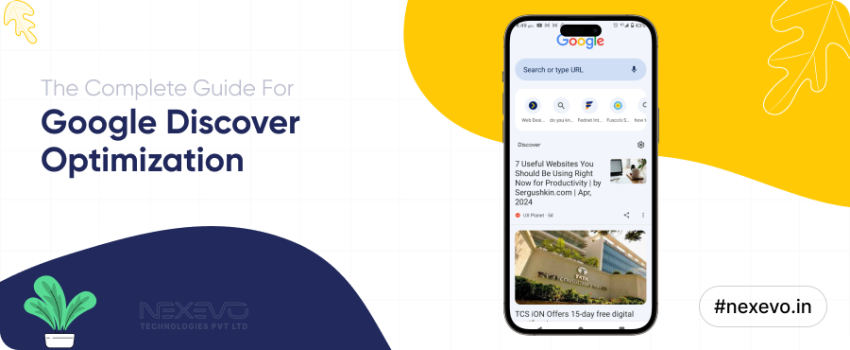How to Improve Website Performance on Google

In the ever-evolving landscape of the digital world, a website's performance can significantly impact its success. One of the key factors in determining a website's success is its performance on search engines, particularly Google. In today's fast-paced online environment, users demand seamless experiences, and a website's loading speed plays a crucial role in meeting these expectations. This article delves into essential strategies and techniques to increase website performance, boost website speed, and improve loading time, all of which are vital for achieving higher rankings on Google.
What Is Website Performance and Why It's Important
Website performance refers to how quickly and efficiently a website loads and operates. It encompasses factors like page loading speed, responsiveness, and overall user experience. For businesses offering web development services, optimizing website performance is crucial for attracting and retaining clients. A web developer understands the importance of delivering fast-loading, user-friendly websites to ensure customer satisfaction and improve search engine rankings, enhancing overall website development outcomes.
10 Tips to Improve Website Performance on Google
Tip 1: Understanding the Importance of Website Performance
Website performance is no longer just a matter of user convenience; it directly impacts several critical aspects of a website's effectiveness. Slow-loading websites not only frustrate users but also lead to increased bounce rates, decreased user engagement, and a negative impact on search engine rankings. Google's algorithm takes into consideration the loading speed of websites when determining search engine rankings, making it essential for website owners and developers to prioritize performance optimization.
Tip 2: Optimize Website Images
High-resolution images can significantly slow down a website's loading speed. To counter this, it's crucial to optimize images for the web. This involves compressing images without sacrificing visual quality. There are various online tools and plugins available that can help reduce the file size of images while maintaining their appearance. By implementing image optimization, you can effectively improve your website's loading time and provide users with a smoother browsing experience.
Tip 3: Minimize HTTP Requests
Every element on a webpage, such as images, scripts, and stylesheets, requires an HTTP request to load. The more requests a web page has, the longer it will take to load. To boost website performance, it's essential to minimize the number of HTTP requests. This can be achieved by combining multiple stylesheets into one, using CSS sprites for icons, and reducing unnecessary scripts. By reducing the number of requests, you can significantly enhance your website's loading speed.
Tip 4: Utilize Browser Caching
Browser caching is a technique that stores certain elements of a webpage in a user's browser after their initial visit. This allows the website to load faster on subsequent visits, as the browser doesn't need to request all the resources again. By setting appropriate cache headers, you can control how long these elements are stored in the user's browser. Leveraging browser caching can notably improve loading times for returning visitors and enhance overall website performance.
Tip 5: Implement Content Delivery Networks (CDNs)
Content Delivery Networks, or CDNs, are networks of servers distributed across various geographic locations. They store cached copies of your website's static assets, like images, stylesheets, and JavaScript files. When a user accesses your website, the CDN serves these assets from the server closest to them, reducing latency and speeding up loading times. CDNs can significantly improve website performance, particularly for users located far from your hosting server.
Tip 6: Optimize Website Code
Clean and efficient code is crucial for fast-loading websites. Bloated or poorly optimized code can slow down a website's performance. Minifying HTML, CSS, and JavaScript files by removing unnecessary whitespace and comments can reduce file sizes and improve loading speed. Additionally, using asynchronous loading for JavaScript files ensures that they don't block the rendering of the page, leading to faster loading times.
Tip 7: Prioritize Above-the-Fold Content
"Above-the-fold" refers to the content that is visible without scrolling when a user first lands on a webpage. Prioritizing the loading of above-the-fold content can create the perception of a faster-loading website. By deferring the loading of non-essential elements further down the page, you can ensure that users get access to the most important information without delay.
Tip 8: Choose a Reliable Web Hosting Provider
The choice of web hosting provider can significantly impact website performance. Opting for a reliable hosting provider that offers sufficient resources, fast servers, and excellent uptime is crucial. Shared hosting may be cost-effective, but it can result in slower loading times due to resource sharing. Consider upgrading to a Virtual Private Server (VPS) or dedicated hosting for improved performance, especially if your website experiences high traffic.
Tip 9: Regularly Update and Optimize Plugins
If your website is built on a platform like WordPress, plugins can enhance its functionality. However, using too many plugins, especially outdated ones, can slow down your website. Regularly review and update plugins to their latest versions to ensure compatibility and optimal performance. Remove any plugins that are no longer necessary, as they can add unnecessary overhead to your website.
Tip 10: Perform Regular Website Audits
Website performance is not a one-time concern; it requires ongoing attention. Regularly audit your website's performance using tools like Google PageSpeed Insights, GTmetrix, or Pingdom. These tools analyze your website and provide insights into areas that need improvement. By identifying and addressing performance bottlenecks, you can maintain a fast and efficient website.
Conclusion: In today's digital age, where user expectations for seamless online experiences are soaring, a website's performance on search engines, especially Google, is critical. Slow-loading websites can deter users and harm search engine rankings. By implementing strategies such as optimizing images, minimizing HTTP requests, utilizing browser caching, and choosing a reliable web hosting provider, a web development company in Bangalore can significantly enhance website performance. Investing in website performance optimization not only improves loading times but also ensures exceptional online experiences for users, fostering a competitive edge in the digital landscape. With regular website audits and updates, businesses can boost website speed and stay ahead in the dynamic online sphere.











